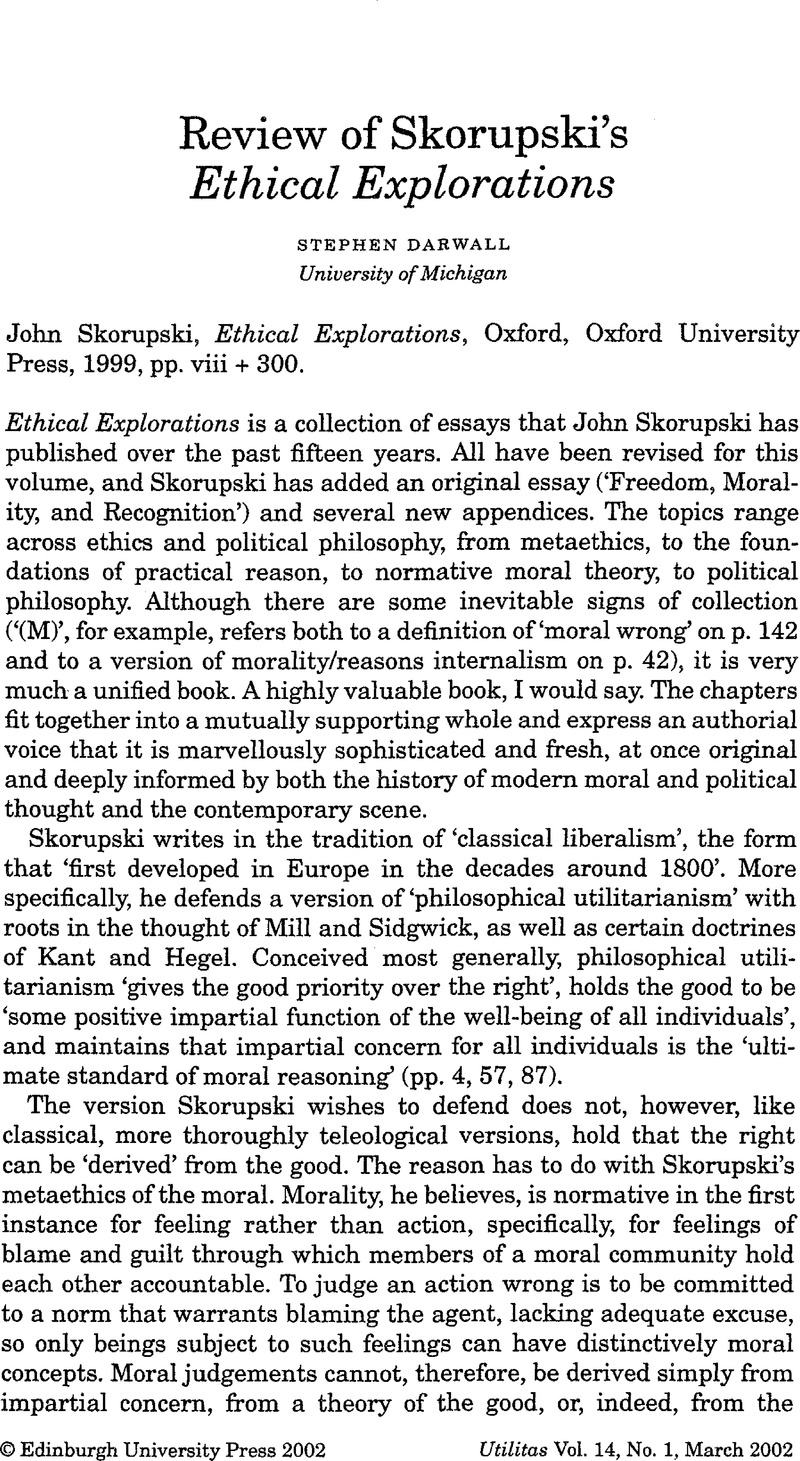Article contents
Review of Skorupski's Ethical Explorations
Published online by Cambridge University Press: 26 January 2009
Abstract

- Type
- Review Article
- Information
- Copyright
- Copyright © Cambridge University Press 2002
References
1 ‘We do not call anything wrong, unless we mean to imply that a person ought to be punished in some way or other for doing it; if not by law, by the opinion of his fellow-creatures; if not by opinion, by the reproaches of his own conscience.’ John Stuart Mill, Utilitarianism, ch. v, para. 14.
2 I draw here on Korsgaard's, Christine distinction between substantive and procedural realism in The Sources of'Normativity, Cambridge, 1996, pp. 35–7CrossRefGoogle Scholar .
3 Utilitarianism, ch. v, para. 23.
4 I argue for this in ‘Because I Want It’, Social Philosophy and Policy, xviii (2001)Google Scholar .
5 Overvold, Mark, ‘Self-Interest and the Concept of Self-Sacrifice’, Canadian Journal of Philosophy, x (1980)Google Scholar .
6 Parfit, Derek, Reasons and Persons, Oxford, 1984, p. 494Google Scholar .
7 I discuss the psychology of sympathy in relation to individual welfare in ‘Empathy, Sympathy, Care’, Philosophical Studies, lxxxix (1998)Google Scholar .
8 I defend and develop this idea in ‘Self-Interest and Self-Concern’, Social Philosophy and Policy, xiv (1997)Google Scholar , and Welfare and Rational Care, Princeton (forthcoming).
9 This line of thought is developed further in ‘Because I Want It’.
10 It is worth mentioning here that Skorupski proposes a way of distinguishing agent-neutral from agent-relative that is somewhat idiosyncratic (pp. 50–4). For a criticism, see Broome, John, ‘Skorupski on Agent-Neutrality’, Utilitas, vii (1995)Google Scholar .
- 1
- Cited by


